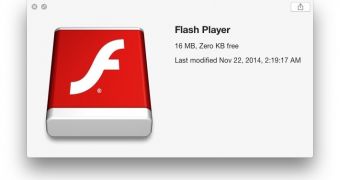Due to security issues in Adobe’s Flash Player, Apple has decided to remotely disable all versions of the software prior to 16.0.0.235 and 13.0.0.259. This is a common practice for the California tech giant.
Apple uses a blocking tool that it can update remotely to thwart hazardous versions of Flash whenever new security issues are discovered. The company considers this a far more efficient method than to release an advisory which users may or may not read. It also doesn’t trust Adobe to release the necessary patches in a timely fashion, which is precisely what happened this week.
Flash Player plug-in blocked
Via a Mailing List update, Apple informs Mac users that “Due to security issues in older versions, Apple has updated the web plug-in blocking mechanism to disable all versions prior to Flash Player 16.0.0.235 and 13.0.0.259.” It offers further information on blocked web plug-ins via its HT202681 support document.
Updated every time Apple makes a change on the Flash front, the document in question says, “If you're using an out-of-date version of the Adobe Flash Player plug-in, you may see the message ‘Blocked plug-in,’ ‘Flash Security Alert,’ or ‘Flash out-of-date’ when attempting to view Flash content in Safari.”
OS X will display a message stating that your Flash installation is outdated, and will recommend that you download a newer version. This is mandatory if the user wishes to continue to use Flash, but there’s a workaround if no new Flash builds are available (more on that below).
Clicking the Download Flash button will launch Safari with the Adobe Flash Player page front and center. The user must follow the instructions on Adobe’s site obtain the new Flash version.
Adobe has yet to respond
In typical manner, Adobe Systems has left the faulty Flash 16 intact, giving Mac users no choice but to either stop enjoying Flash content, or run the plug-in in unsafe mode for websites that they trust using the Internet plug-in management in Safari.
Most of the Flash Player updates churned out by Adobe are, in fact, security patches. Even major new releases close a fair share of security holes, in what makes it evident that Flash is not exactly a secure platform. Hence, Apple’s decision to take matters into its own hands and block vulnerable versions every time someone reports a flaw. Adobe will most likely patch the buggy Flash for Mac in the coming days.

 14 DAY TRIAL //
14 DAY TRIAL // 



